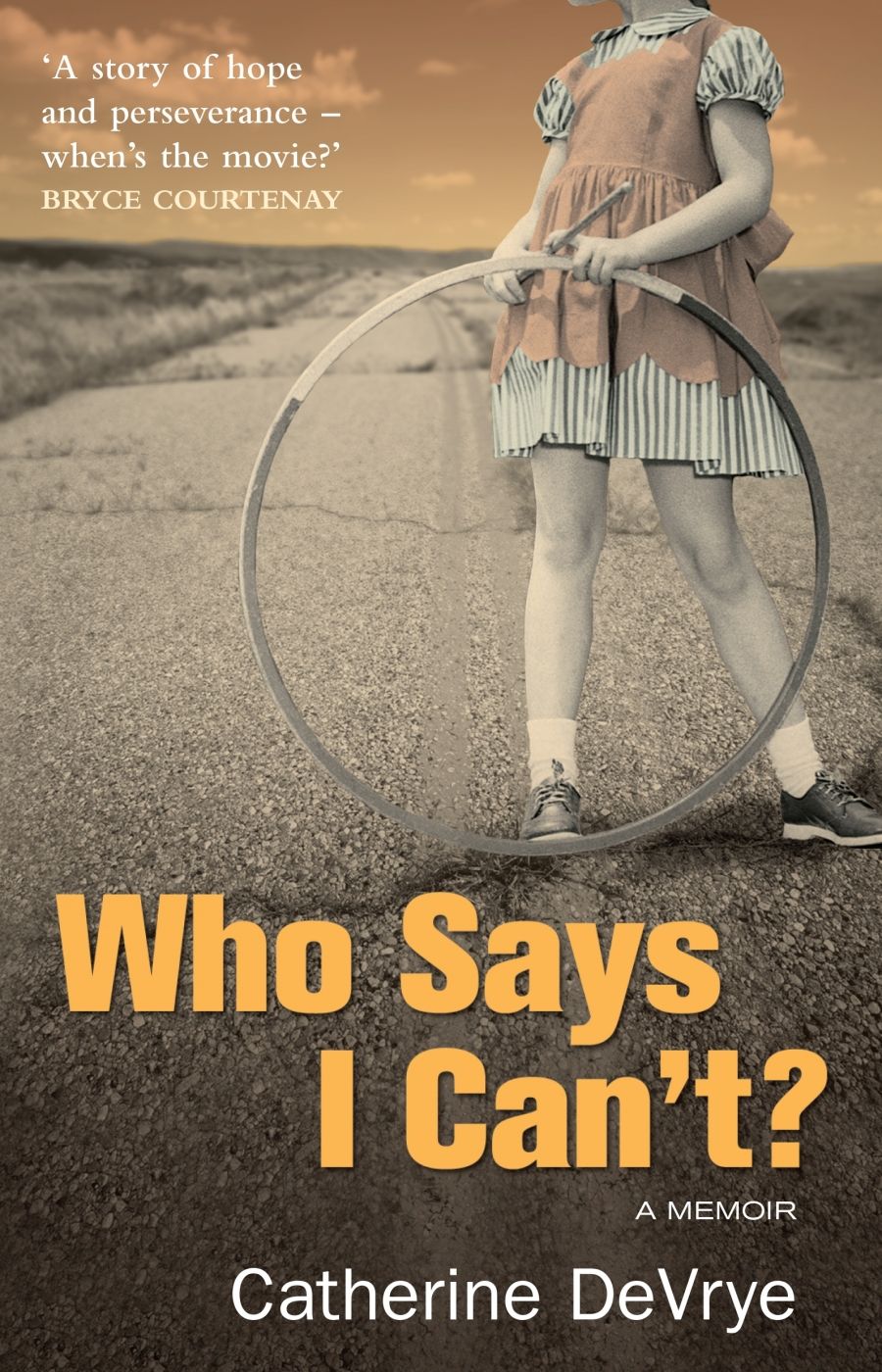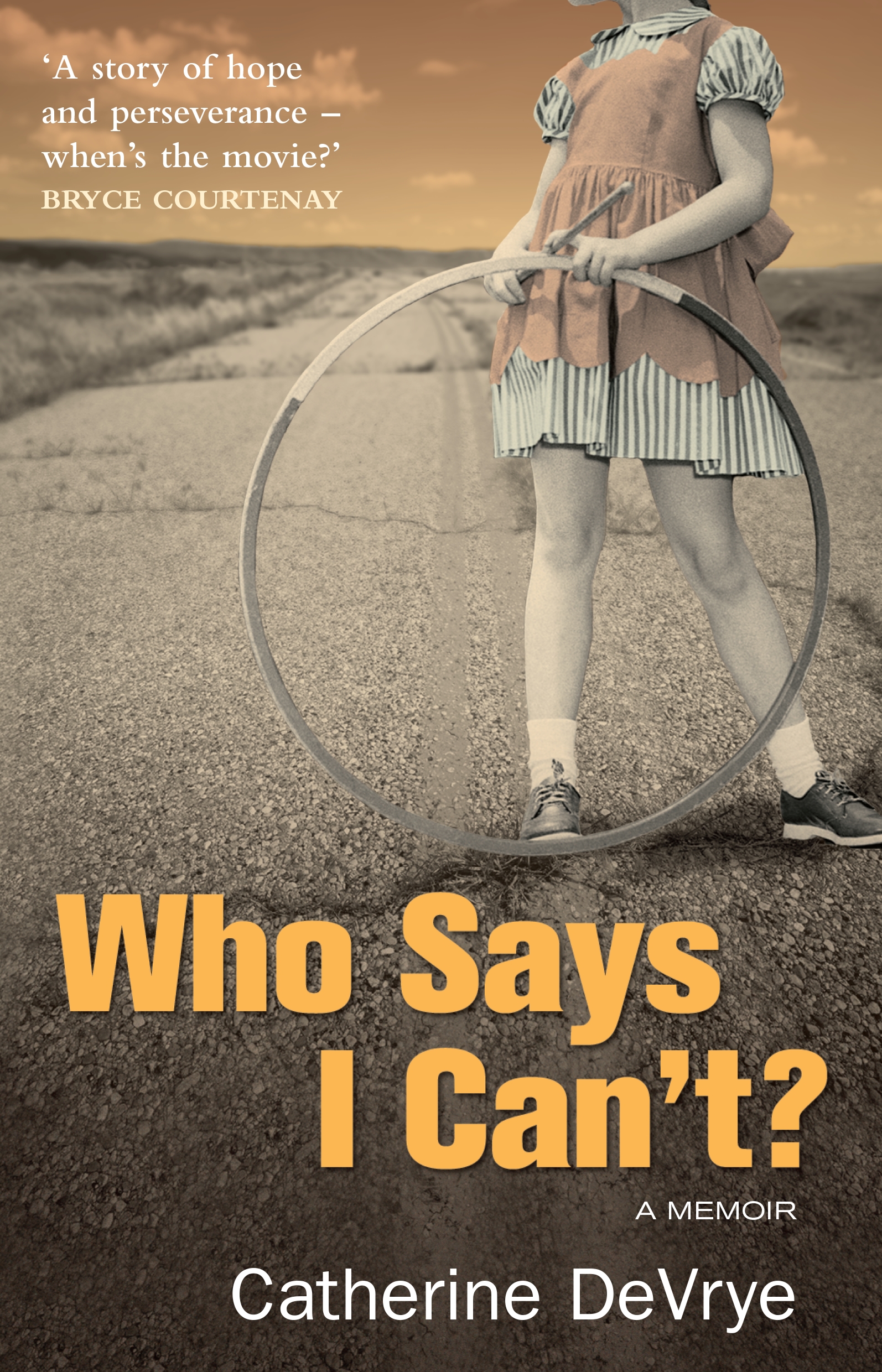
- Free Article: No
- Contents Category: Memoir
- Review Article: Yes
- Article Title: Steaming on
- Online Only: No
- Custom Highlight Text:
With the recent Tony Abbott paternity saga unfolding in spectacular fashion, adoption is back in the news. Not that it ever really went away. Adoption was such a common practice in postwar Australia that there is a ready-made constituency for reunion stories. Many birth parents, especially birth mothers, hunger for details of successful reunions. Adoptees search out familiar patterns in the biographies of other relinquished adults. But more than that, there is something primal about separation, loss and reunion that attracts a wider audience to adoption narratives. It is not simply that almost everyone over thirty knows someone who was adopted. There is something about postwar adoption experiences that sharpens our sense of human relationships as both fragile and resilient.
- Book 1 Title: Who Says I Can't?
- Book 1 Subtitle: A Memoir
- Book 1 Biblio: Bantam, $22.95 pb, 349 pp
- Book 1 Cover Small (400 x 600):

- Book 1 Cover (800 x 1200):

Little surprise, then, that adoption has featured regularly in the recent boom of published life stories. In Australia, Robert Dessaix’s A Mother’s Disgrace (1994) leads the field in its graceful, almost seductive, account of the adopted child as fey adult. Catherine DeVrye’s autobiography isn’t as poetic as Dessaix’s slimmer volume, nor is at as artful. What she lacks in lucidity, she makes up in boundless enthusiasm and optimism. DeVrye is the author of business and motivational literature, and it shows. The book is full of personal aphorisms on how best to approach life. Depending on your temperament, this is either inspiring or, eventually, a little wearying.
As in Dessaix’s narrative, it is a brush with death that prompts DeVrye to search out her birth family. A successful business executive in her mid-thirties, working in Tokyo, DeVrye must confront her adoption when laid up in hospital, as doctors quiz her about hereditary conditions. So begins her quest, fitful at first, to find her biological parents. Like many adoptees, she at first explains this search to herself as a purely pragmatic, medical investigation. I think adoptees may do this to protect the relationship with their birth parents and to protect themselves from further feelings of rejection. For DeVrye, matters are complicated by the early deaths of her beloved birth parents when she was only twenty-one. Or, as she begins the book: ‘By the time I was twenty-two, I had been orphaned twice. Although somewhat melodramatic, this statement is technically true.’
I’m not sure it is technically true, for abandonment is not the same as death, although it can feel like it. One of the delights in this book is watching DeVrye open up to the possibility of new familial bonds, especially with her birth father, with whom she shares a love of rodeos and an indomitable spirit. With her birth mother, Trudy, DeVrye feels little connection, and Trudy cuts a somewhat tragic figure in this book. Both birth parents, however, labour under the long shadow of DeVrye’s adopted parents, the best parents imaginable, according to their adopted daughter.
More than an adoption story, Who Says I Can’t? is the story of a self-made woman triumphing over adversity. Leaving her homeland, Canada, DeVrye makes a new life for herself in Australia, moving up through state government as a ministerial adviser and then the private sector. It is a rollicking, good-natured yarn, full of achievement, tragedy, travel, famous names and acclaim. DeVrye’s message is that the individual must accept full responsibility for her life, including the past. ‘Forget the blame game. None of us can change what has been by wishing for what was not.’ There are other ways of accepting responsibility, though, that DeVrye’s insistent optimism foreclose. Perhaps it is possible to mourn what might have been, and to rail against history, without forfeiting individual responsibility and the possibility of change.
The book is also an account of how the author came to write. Urged on by Bryce Courtenay, who has endorsed the finished product, DeVrye is convinced she has a story to tell. In this she is not alone, but what distinguishes DeVrye from other writers is her outstanding persistence. Whatever life throws at her – including cancer and a less than successful romantic life – she bounces back for more. So, too, with writing. Excerpts from her journal recount a struggle to find a writer’s voice, or, more specifically, the confidence to call herself a writer. But by the end of the book, she is dreaming of becoming ‘a writer who speaks, rather than a speaker who writes’. Good on her. Certainly, you get the impression that DeVrye will never shy away from the discipline and endurance needed to write. There are too many authors who think they can write but don’t. In contrast, DeVrye steams on regardless, and for this she has my admiration. Now, if only she could bottle it.


Comments powered by CComment